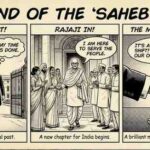Key Metrics:
- Lok Sabha Seats: 25
- Rajya Sabha Seats: 10
- Population: Approximately 80 million (2025 estimate)
- GDP Contribution: ₹10.20 lakh crore (FY 2023-24)
- Urbanization Rate: 30%
- Major Economic Sectors: Mining, tourism, textiles, and agriculture
Jaipur, 2025 — Known for its opulent palaces and storied battlefields, Rajasthan’s cultural heritage is not just a draw for tourists but a profound influence on its contemporary politics. The state’s historical context, characterized by royal dynasties and traditional governance, continues to play a significant role in shaping its political landscape. This article explores how Rajasthan’s rich heritage might influence its political future, considering the intertwining of cultural identity with modern governance.
Influence of Heritage on Political Identity
- Historical Governance Models
- Legacy of the Rajputana: The valorous histories and governance models of Rajput kings continue to inspire political narratives in Rajasthan, shaping how leadership and loyalty are perceived and enacted in modern politics.
- Feudal Loyalties: Traditional loyalties to clan and family, stemming from its feudal past, still influence voter behavior and political alliances, affecting electoral outcomes and party politics.
- Cultural Pride and Political Capital
- Cultural Pride as a Political Tool: Politicians often leverage Rajasthan’s cultural pride to garner support, using historical references and symbols to resonate with the electorate’s sense of identity.
- Festivals and Commemorations: Public events and cultural festivals serve as platforms for political engagement and messaging, reinforcing the connections between heritage and contemporary political issues.
Heritage in Policy Making
- Tourism and Economic Development
- Tourism-Centric Policies: The state government crafts policies that promote tourism, not only to boost the economy but also to preserve and capitalize on the heritage sites that are synonymous with Rajasthan’s identity.
- Global Cultural Diplomacy: Rajasthan’s heritage is used as a tool in cultural diplomacy, enhancing India’s soft power on the global stage, which in turn impacts foreign policy and international economic engagements.
- Preservation Laws and Modernization
- Heritage Preservation: Legislation aimed at preserving historical sites and traditional arts affects urban planning and rural development, reflecting a balance between conservation and modernization.
- Infrastructure Development: While there is a drive for modern infrastructure, there is also a political imperative to ensure that development does not undermine heritage, leading to unique policy frameworks that integrate traditional aesthetics with modern amenities.
Challenges and Contemporary Relevance
- Balancing Tradition with Progress
- Resistance to Change: While heritage can be a significant draw, over-reliance on traditional ways may hinder innovation and adaptation in governance, especially in areas like digitalization and economic diversification.
- Educational and Social Reforms: There is a need to harmonize educational and social policies with the changing dynamics of a globalized world, ensuring that the valorization of heritage does not impede progressive social policies.
- Political Mobilization and Identity
- Identity Politics: The use of cultural heritage in political mobilization can sometimes exacerbate regional and communal divides, posing challenges for social unity.
- Youth Engagement: Engaging a younger, more globally connected generation requires political narratives that honor heritage while promoting forward-looking, inclusive policies.
Conclusion: Heritage as a Political Steersman
Rajasthan’s rich heritage is a double-edged sword in its political arena—both a unique asset and a complex challenge. As the state looks forward, the task for its leaders is to navigate this heritage to craft a political future that respects tradition while embracing innovation and inclusivity. How successfully Rajasthan integrates these aspects will significantly shape its political trajectory and its role within the broader Indian polity.




























